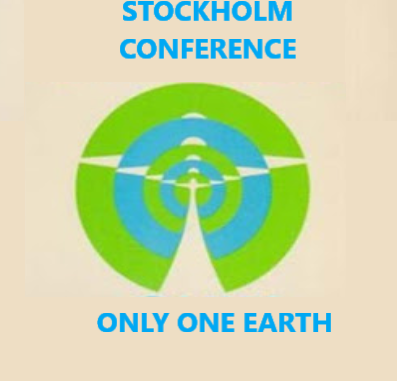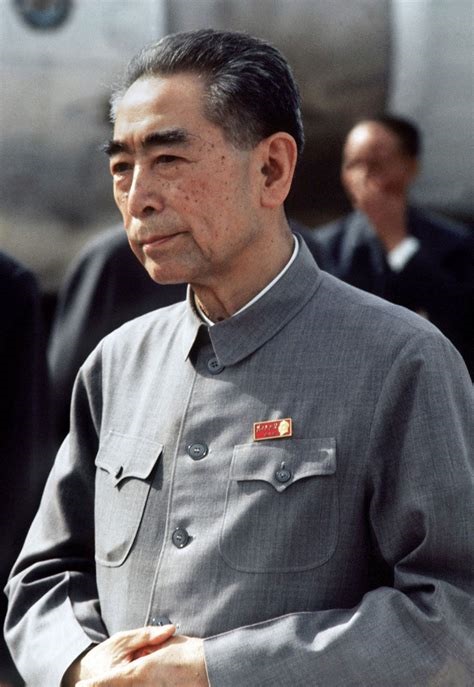
The Stockholm Conference on the Human Environment, in June 1972, was the first major United Nations event featuring the People’s Republic of China. It helped shape the country’s understanding of environmental issues ever since.
In 2022, China was set to host a major UN environmental conference, after a delay of more than a year due to Covid-19. The 15th Conference of the Parties to the UN Convention on Biological Diversity (CBD COP15), to be held in Kunming from Oct 11-15, will not be the first UN environmental talks hosted by China. But since COP15 has the mission of reaching a global agreement on biodiversity protection for the next decade, China’s presidency carries a particular weight, as countries look for effective leadership to move the negotiations forward.
As the 50th anniversary of the Stockholm Conference draws nearer (June 2022), China Dialogue interviewed Dr Li Lailai (biographical details below).
As part of her research Dr Li has closely reviewed archival materials from the Stockholm conference and interviewed its participants both in China and in Sweden.
Among her interviewees was Qu Geping, member of the 1972 Chinese delegation and “father of environmental protection in China.” **
In the following interview Dr Li shares with us the unique historical context of the conference, China’s role in it and its impact on China’s environmental trajectory.

Tang Ke, chairman of China’s delegation, delivering a speech at the conference (Image United Nations)
Just 50 years ago, in October 1971, China joined the United Nations, being seated as a permanent member by a vote at the General Assembly. Since then the country has grown into an indispensable stakeholder in global environmental governance. Its participation in international processes has also influenced China’s thinking about its own environmental protection.
The 1972 UN Conference on the Human Environment, held in Stockholm from 5 to 16 June, was the first major UN environmental event that China participated in as a permanent member. It was also the starting point for China to critically look at global environmental issues. The conference, happening at a time of heightened Cold War tensions, for the first time presented to China’s leaders the challenges of environment and development, environment and ideology, environment and future generations. It spurred them to look at China’s own emerging environmental problems when the country was still mired in Cultural Revolution chaos. The seed of post-Cultural Revolution environmental efforts was planted then and there.
Extract from interview with Qu Geping, member of the 1972 Chinese delegation:
The invitation for the 1972 conference arrived at the time of the Cultural Revolution. How did China view the conference, and its own environmental problems, then?
“According to Qu Geping’s recollections, most people involved in China’s preparation for the conference approached it as a forum of “international class struggle”. They saw environmental problems as the exclusive ills of capitalist societies. But Premier Zhou Enlai made interventions in the process and pointed out that China should acknowledge its own environmental problems and use the conference as an opportunity to reflect on such issues and study the good practices of other nations.”

“Zhou also realised that although pollution of the environment brought harm to human health, it was not merely an issue of public health and hygiene. It touched upon all aspects of the national economy. The original plan to have the Ministry of Health lead the Chinese delegation was vetoed by Zhou, who instructed the Ministry of Fuel and Chemicals and the National Commission for Planning to put together a delegation. In the end, the Chinese delegation hailed from multiple ministries and departments, led by Tang Ke, Vice Minister of Fuel and Chemicals, and Gu Ming, Deputy Director of the National Commission for Planning. Qu Geping and Bi Jilong, then colleagues
at the State Council Group for Plan Drafting, were also enlisted into the 40-member delegation.”
“For China, after the country’s environmental protection work started to pick up speed in the 1980s [with the establishment of a dedicated environmental agency and new environmental laws created], the China Council for the International Cooperation on Environment and Development (CCICED) was established following Qu Geping’s suggestion. China was among the first countries to systematically and proactively start to advance international environmental cooperation.” [End Extract]
** Qu Geping became China’s first environment protection chief between 1987 and 1993 when the bureau of environment protection was founded. The bureau is now the Ministry of Environment and Ecology (MEE). He then went on to head the National People’s Congress environment and resource committee for 10 years. He was 91 in April this year.
Author: Dr. Li is a widely recognized expert, published author and researcher based in Beijing. She has served as Deputy Director of the China Urban Sustainable Transport Research Centre at China’s Ministry of Transport; as Asia Centre Director of the Stockholm Environment Institute; and as Director of the World Resources Institute’s China office. She was a Post-Doctoral Research Fellow at the Institute of Sociology and Anthropology at Peking University, in Beijing, and received her PhD in Sociology from the University of Pittsburgh, in the United States.
She is a globally recognized leader in sustainability and environmental issues, including a focus on poverty alleviation and environment issues. Her recent research work and research include: economics of climate change in China; China’s ecosystem services and management strategy; low-carbon development of small and medium sized cities in China; the regional climate change adaptation knowledge platform in Asia; and the Sustainable Mekong Research Network, among others.

Read full interview: China Dialogue, September 23, 2021
https://chinadialogue.net/en/nature/stockholm-1972-chinas-environmental-journey/
** See also: China’s first environment chief content with progress, Global Times, Sept 14, 2019 for more about Qu Geping